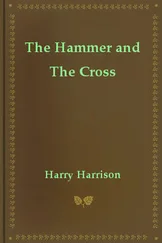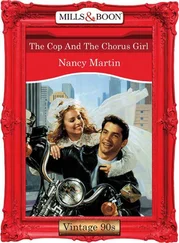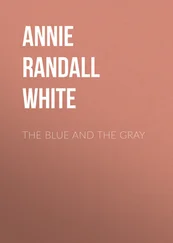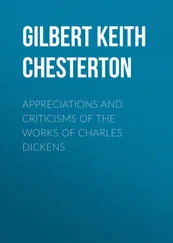Gilbert Chesterton - The Ball and the Cross
Здесь есть возможность читать онлайн «Gilbert Chesterton - The Ball and the Cross» весь текст электронной книги совершенно бесплатно (целиком полную версию без сокращений). В некоторых случаях можно слушать аудио, скачать через торрент в формате fb2 и присутствует краткое содержание. Жанр: Классическая проза, на английском языке. Описание произведения, (предисловие) а так же отзывы посетителей доступны на портале библиотеки ЛибКат.
- Название:The Ball and the Cross
- Автор:
- Жанр:
- Год:неизвестен
- ISBN:нет данных
- Рейтинг книги:5 / 5. Голосов: 1
-
Избранное:Добавить в избранное
- Отзывы:
-
Ваша оценка:
- 100
- 1
- 2
- 3
- 4
- 5
The Ball and the Cross: краткое содержание, описание и аннотация
Предлагаем к чтению аннотацию, описание, краткое содержание или предисловие (зависит от того, что написал сам автор книги «The Ball and the Cross»). Если вы не нашли необходимую информацию о книге — напишите в комментариях, мы постараемся отыскать её.
The Ball and the Cross — читать онлайн бесплатно полную книгу (весь текст) целиком
Ниже представлен текст книги, разбитый по страницам. Система сохранения места последней прочитанной страницы, позволяет с удобством читать онлайн бесплатно книгу «The Ball and the Cross», без необходимости каждый раз заново искать на чём Вы остановились. Поставьте закладку, и сможете в любой момент перейти на страницу, на которой закончили чтение.
Интервал:
Закладка:
Turnbull leapt up again in a living fury and cried: “What have I got to do with MacIan? I believe all I ever believed, and disbelieve all I ever disbelieved. What does all this mean, and what do you want with me here?”
Then for the first time the other lifted himself from the edge of the car and faced him.
“I have brought you here,” he answered, “to take part in the last war of the world.”
“The last war!” repeated Turnbull, even in his dazed state a little touchy about such a dogma; “how do you know it will be the last?”
The man laid himself back in his reposeful attitude, and said:
“It is the last war, because if it does not cure the world for ever, it will destroy it.”
“What do you mean?”
“I only mean what you mean,” answered the unknown in a temperate voice. “What was it that you always meant on those million and one nights when you walked outside your Ludgate Hill shop and shook your hand in the air?”
“Still I do not see,” said Turnbull, stubbornly.
“You will soon,” said the other, and abruptly bent downward one iron handle of his huge machine. The engine stopped, stooped, and dived almost as deliberately as a man bathing; in their downward rush they swept within fifty yards of a big bulk of stone that Turnbull knew only too well. The last red anger of the sunset was ended; the dome of heaven was dark; the lanes of flaring light in the streets below hardly lit up the base of the building. But he saw that it was St. Paul’s Cathedral, and he saw that on the top of it the ball was still standing erect, but the cross was stricken and had fallen sideways. Then only he cared to look down into the streets, and saw that they were inflamed with uproar and tossing passions.
“We arrive at a happy moment,” said the man steering the ship. “The insurgents are bombarding the city, and a cannon-ball has just hit the cross. Many of the insurgents are simple people, and they naturally regard it as a happy omen.”
“Quite so,” said Turnbull, in a rather colourless voice.
“Yes,” replied the other. “I thought you would be glad to see your prayer answered. Of course I apologize for the word prayer.”
“Don’t mention it,” said Turnbull.
The flying ship had come down upon a sort of curve, and was now rising again. The higher and higher it rose the broader and broader became the scenes of flame and desolation underneath.
Ludgate Hill indeed had been an uncaptured and comparatively quiet height, altered only by the startling coincidence of the cross fallen awry. All the other thoroughfares on all sides of that hill were full of the pulsation and the pain of battle, full of shaking torches and shouting faces. When at length they had risen high enough to have a bird’s-eye view of the whole campaign, Turnbull was already intoxicated. He had smelt gunpowder, which was the incense of his own revolutionary religion.
“Have the people really risen?” he asked, breathlessly. “What are they fighting about?”
“The programme is rather elaborate,” said his entertainer with some indifference. “I think Dr. Hertz drew it up.”
Turnbull wrinkled his forehead. “Are all the poor people with the Revolution?” he asked.
The other shrugged his shoulders. “All the instructed and class-conscious part of them without exception,” he replied. “There were certainly a few districts; in fact, we are passing over them just now–”
Turnbull looked down and saw that the polished car was literally lit up from underneath by the far-flung fires from below. Underneath whole squares and solid districts were in flames, like prairies or forests on fire.
“Dr. Hertz has convinced everybody,” said Turnbull’s cicerone in a smooth voice, “that nothing can really be done with the real slums. His celebrated maxim has been quite adopted. I mean the three celebrated sentences: ‘No man should be unemployed. Employ the employables. Destroy the unemployables.’”
There was a silence, and then Turnbull said in a rather strained voice: “And do I understand that this good work is going on under here?”
“Going on splendidly,” replied his companion in the heartiest voice. “You see, these people were much too tired and weak even to join the social war. They were a definite hindrance to it.”
“And so you are simply burning them out?”
“It does seem absurdly simple,” said the man, with a beaming smile, “when one thinks of all the worry and talk about helping a hopeless slave population, when the future obviously was only crying to be rid of them. There are happy babes unborn ready to burst the doors when these drivellers are swept away.”
“Will you permit me to say,” said Turnbull, after reflection, “that I don’t like all this?”
“And will you permit me to say,” said the other, with a snap, “that I don’t like Mr. Evan MacIan?”
Somewhat to the speaker’s surprise this did not inflame the sensitive sceptic; he had the air of thinking thoroughly, and then he said: “No, I don’t think it’s my friend MacIan that taught me that. I think I should always have said that I don’t like this. These people have rights.”
“Rights!” repeated the unknown in a tone quite indescribable. Then he added with a more open sneer: “Perhaps they also have souls.”
“They have lives!” said Turnbull, sternly; “that is quite enough for me. I understood you to say that you thought life sacred.”
“Yes, indeed!” cried his mentor with a sort of idealistic animation. “Yes, indeed! Life is sacred–but lives are not sacred. We are improving Life by removing lives. Can you, as a free-thinker, find any fault in that?”
“Yes,” said Turnbull with brevity.
“Yet you applaud tyrannicide,” said the stranger with rationalistic gaiety. “How inconsistent! It really comes to this: You approve of taking away life from those to whom it is a triumph and a pleasure. But you will not take away life from those to whom it is a burden and a toil.”
Turnbull rose to his feet in the car with considerable deliberation, but his face seemed oddly pale. The other went on with enthusiasm.
“Life, yes, Life is indeed sacred!” he cried; “but new lives for old! Good lives for bad! On that very place where now there sprawls one drunken wastrel of a pavement artist more or less wishing he were dead– on that very spot there shall in the future be living pictures; there shall be golden girls and boys leaping in the sun.”
Turnbull, still standing up, opened his lips. “Will you put me down, please?” he said, quite calmly, like on stopping an omnibus.
“Put you down–what do you mean?” cried his leader. “I am taking you to the front of the revolutionary war, where you will be one of the first of the revolutionary leaders.”
“Thank you,” replied Turnbull with the same painful constraint. “I have heard about your revolutionary war, and I think on the whole that I would rather be anywhere else.”
“Do you want to be taken to a monastery,” snarled the other, “with MacIan and his winking Madonnas.”
“I want to be taken to a madhouse,” said Turnbull distinctly, giving the direction with a sort of precision. “I want to go back to exactly the same lunatic asylum from which I came.”
“Why?” asked the unknown.
“Because I want a little sane and wholesome society,” answered Turnbull.
There was a long and peculiar silence, and then the man driving the flying machine said quite coolly: “I won’t take you back.”
And then Turnbull said equally coolly: “Then I’ll jump out of the car.”
The unknown rose to his full height, and the expression in his eyes seemed to be made of ironies behind ironies, as two mirrors infinitely reflect each other. At last he said, very gravely: “Do you think I am the devil?”
Читать дальшеИнтервал:
Закладка:
Похожие книги на «The Ball and the Cross»
Представляем Вашему вниманию похожие книги на «The Ball and the Cross» списком для выбора. Мы отобрали схожую по названию и смыслу литературу в надежде предоставить читателям больше вариантов отыскать новые, интересные, ещё непрочитанные произведения.
Обсуждение, отзывы о книге «The Ball and the Cross» и просто собственные мнения читателей. Оставьте ваши комментарии, напишите, что Вы думаете о произведении, его смысле или главных героях. Укажите что конкретно понравилось, а что нет, и почему Вы так считаете.









